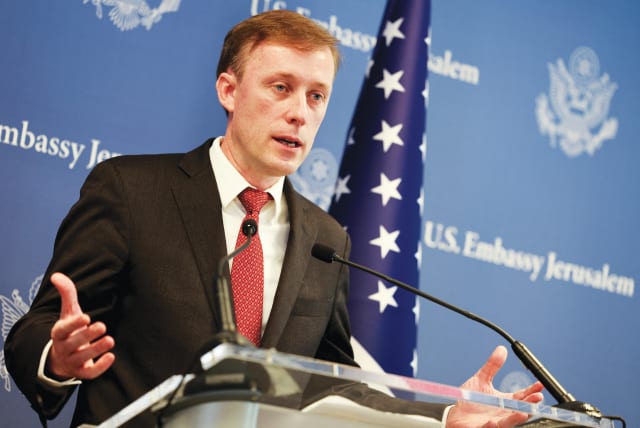Voices from the Arab press: Israel-Gaza war is universally rejected

A weekly selection of opinions and analyses from the Arab media around the world.
The Gaza war is universally rejectedAl-Ahram, Egypt, December 19
In a time of crisis, both David Cameron, the British foreign secretary, and Annalena Baerbock, his German counterpart, have called for a two-state solution in the Middle East once the Israeli war on the Gaza Strip concludes. These ministers have expressed their deep distress over the suffering in the region, particularly the heartbreaking loss of innocent children. They have emphasized the need for Israel to uphold international humanitarian law and cautioned against jeopardizing the possibilities of peaceful coexistence with the Palestinians.
Additionally, Cameron and Baerbock have highlighted the detrimental actions of settlers in the West Bank, who hinder efforts for a two-state solution and forcefully displace Palestinians. Ultimately, they called for an immediate end to the ongoing violence.
Reflecting on the situation, I couldn’t help but wonder about the purpose of US national security adviser Jake Sullivan’s visit to the region. Did he visit on behalf of President Biden or merely to advocate for a ceasefire? Would he be able to resolve the disagreements between Benjamin Netanyahu and President Biden? Will he be able to put an end to the war, the relentless fighting, the devastating loss of civilian lives, and the tragic deaths of children? Upon deeper consideration, it appears that Sullivan’s visit, though not entirely successful, has fared better than Secretary of State Antony Blinken’s three previous trips since the war began.
– Osama Saraya
Iran moves to attack from YemenAn-Nahar, Lebanon, December 20
The attacks carried out by the Houthi rebels in the Red Sea and Bab el-Mandeb Strait can no longer be seen as ones solely affecting Israeli interests. These attacks have escalated to pose a threat to the security of sea routes, waterways, and global trade. The implications extend beyond Israel’s national security, reaching dozens of nations involved in ship ownership, cargo transportation, and shipping.
This is a complex issue that cannot be overstated. Consequently, this issue has become an international matter. The Houthi militias’ control over strategic arteries like Bab el-Mandeb, which ultimately leads to the Suez Canal in the north, is an extremely dangerous situation. This part of the world holds great significance for the global economy, accounting for 14% of international trade and 7% of oil supplies.
Allowing the Houthis, with their unilateral decision-making or under Iranian influence, to disrupt the flow of international trade routes poses a severe problem. The Houthis, who are unreliable and reckless, cannot be trusted to act responsibly in such a sensitive area.
Today, President Biden’s administration is beginning to realize the mistake in policy that was made three years ago, which was in line with former President Barack Obama’s policies toward Iran. Those policies included unlocking billions of dollars for Iran and facilitating its expansion of influence in four Arab countries. Today, Iran is utilizing Yemeni territory as a launching pad for its attacks.
– Ali Hamada
The Gaza War and America’s isolationismAl-Ittihad, UAE, December 20
The events of the past week have revealed the detrimental impact of the United States’ leniency and indifference toward Israeli policies on America’s global reputation. The United Nations witnessed two votes calling for a ceasefire in Gaza, and it became evident that most of our allies have distanced themselves from the United States.
This comes at a time when many are questioning our leadership in the world. The Israeli bombing of Palestinians in Gaza has persisted for over two months, resulting in an alarming death toll of nearly 20,000 people, the majority of whom are innocent civilians. The northern region of Gaza has been reduced to ruins, displacing almost 2 million Palestinians from their homes.
Israel has tactlessly shifted its bombing campaign to the south, where Palestinians are forced to relocate, only to be struck in the same areas they were ordered to move to. This constant turmoil has caused hunger and disease to ravage the temporary camps in the south, creating a humanitarian catastrophe that can only be described as genocide, exacerbated by Israel’s actions.
Realizing the gravity of this crisis, the United Arab Emirates mission to the United Nations introduced a resolution to the Security Council, urging a ceasefire for humanitarian reasons. This resolution gained support from 103 countries as co-sponsors. Surprisingly, the United States invested significant political capital in persuading other nations to vote “no” in the lead-up to the vote, but their efforts failed.
The United States’ isolation became evident when it found itself on a short list of countries opposing the resolution and the United Kingdom abstained from voting. The following day, the General Assembly demonstrated further evidence of America’s isolation, as a non-binding cease-fire resolution garnered 153 votes in favor, while only the United States and nine other nations voted “no.” In conclusion, while international public opinion around Israeli conduct is shifting, American policy remains stagnant and increasingly isolated.
– James Zogby
Immigration law and Macron’s failureOkaz, Saudi Arabia, December 19
The failure to pass the new immigration law in France, spearheaded by Interior Minister Gérald Darmanin, is a clear testament to the shortcomings of the French government. The resolution submitted by the Green Party, which refused to discuss the law, was met with approval from a majority of members in the French National Assembly, albeit by a narrow margin of five votes.
Notably, the left and right factions both rejected the proposal. While Minister Darmanin had hoped this law would mark the beginning of his presidential campaign after President Macron’s term ends, his aspirations were swiftly quashed due to a miscalculation in political strategy.
This setback, however, can be seen as a significant failure on President Macron’s part. During his electoral campaign, Macron had promised to implement a stricter immigration law as a means of countering the far-right movement’s agenda. The irony lies in both the extreme left and the extreme right voting against the law, each for their own distinct reasons.
The populist right deems the law too lenient, advocating for the cessation of medical aid for undocumented immigrants as well as the denial of regularization for workers lacking proper residency papers. Conversely, the left rejects the restrictions imposed by the law on residence permits, family reunification, and medical assistance.
The French government’s inability to pass this crucial immigration bill is not only a personal failure for President Macron but a broader failure within a politically complex landscape where the absolute majority has been lost. This predicament has led the President to utilize Article 49.3 of the constitution on multiple occasions, which permits the passing of legislation without parliamentary approval.
– Rami Al-Khalifa Al-Ali
Translated by Asaf Zilberfarb
Jerusalem Post Store
`; document.getElementById("linkPremium").innerHTML = cont; var divWithLink = document.getElementById("premium-link"); if (divWithLink !== null && divWithLink !== 'undefined') { divWithLink.style.border = "solid 1px #cb0f3e"; divWithLink.style.textAlign = "center"; divWithLink.style.marginBottom = "15px"; divWithLink.style.marginTop = "15px"; divWithLink.style.width = "100%"; divWithLink.style.backgroundColor = "#122952"; divWithLink.style.color = "#ffffff"; divWithLink.style.lineHeight = "1.5"; } } (function (v, i) { });

